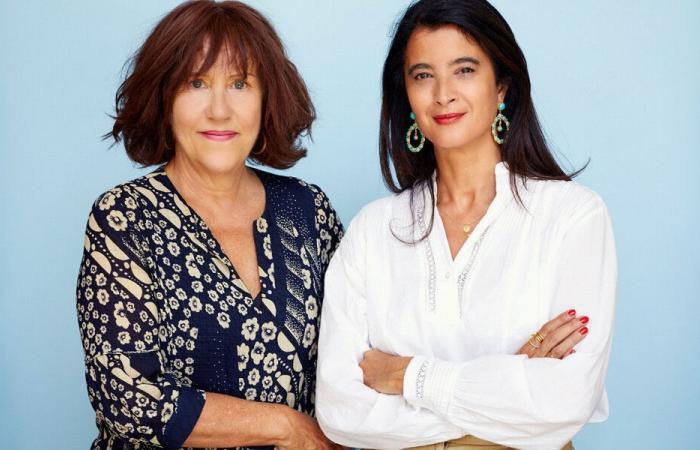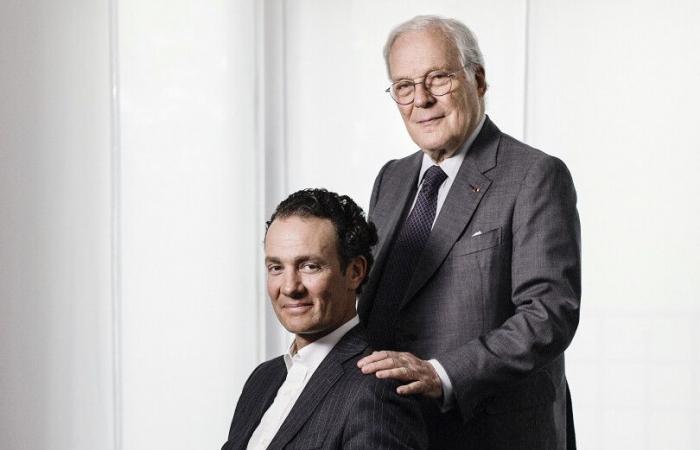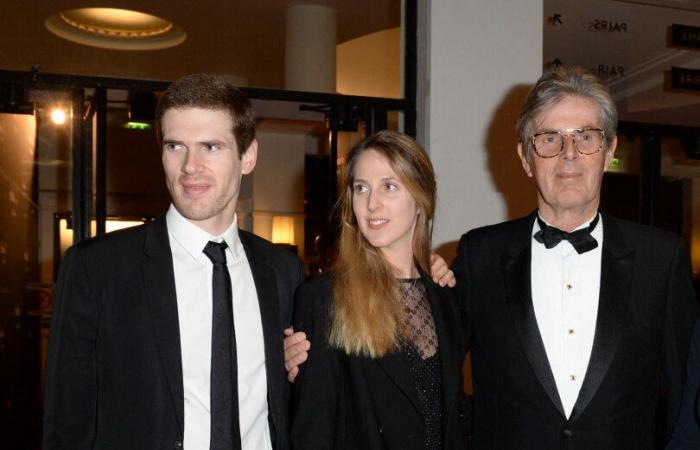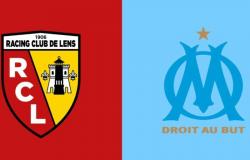How was the idea for this book born, the two volumes of which compile surveys published in the newspaper Le Monde on successions in the great families of French capitalism?
I had the idea for the first time when I went to meet Bernard Arnault as part of another investigation which also gave rise to a book on Karl Lagerfeld. He received me in his office where his son Jean was doing math exercises. It is so rare to see men, and even more so big bosses, taking care of their children’s homework that I spontaneously spoke to him about an investigation into the way he educated his children. Quite reluctant at first, he ended up accepting. What interested us was to look at the different faces of French family capitalism by questioning the issue of transmission which plays out through the passage of generations.
Which families were the most difficult to convince to play the game?
Not all of them agreed to speak to us, and when they do it is not necessarily with joy of heart, but the publication of the first part of the survey made our work easier: after reading us, most of our interlocutors understood our project better. Some remain very difficult to approach: this is the case of the Wertheimers, owners of the Chanel house, whose faces few people know. They never deviated from the rule of not exposing themselves, and today their heirs are doing the same. Whether it is the people who work with them at Chanel, or who take care of their vines or their horses, discretion is a golden rule.
Does this culture of secrecy play a role in their success?
This invisibility does not influence the success of their business, which is a matter of strategic vision and good governance, but it undoubtedly contributes to their tranquility and freedom. When the yellow vests demonstrate, they are more likely to attack the windows of LVMH stores because Bernard Arnault, whose face and life are known, becomes a political target. This is sometimes a problem for one’s own safety and that of one’s family.
This second volume is devoted to the transmission of power within seven dynasties including Dassault, Barrière, Leclerc and Ricard. Do we find similarities in their inheritance stories?
Not so much because it is often the irrational that takes precedence. When passing from one generation to another, it is emotions and feelings that dominate, sometimes even to the detriment of the company. So when Paul Ricard ousted his son Bernard from the management of the group, in 1971, he did not choose reason: the future would prove that the strategic choices initiated by the latter – getting out of pastis and diversifying around the world , were the good ones. But he couldn’t bear to see, too quickly, too soon, his heir gain the upper hand.
In all your characters, we guess that the textbook case of Jean-Luc Lagardère, who died suddenly without having prepared his succession, is an anti-model to be avoided at all costs…
Everyone cited it to us. It is a trauma still alive in many business leaders that has ingrained in them this lesson: propelling someone too early who is not ready or who does not want can be fatal. The idea of taking the time to train the following generations has therefore gained ground even if it has not always been implemented judiciously. Let’s take the Dassaults, Marcel and Serge, two extraordinary engineers endowed with great intelligence: they proved to be terrible fathers, incapable of transmitting the love and confidence which could have given their sons the necessary foundation to build themselves.
Love, precisely: you say that it is a word that you heard little during your months of investigation, except among the Rothschilds!
Indeed, David Rothschild is the only one to have uttered this word regarding his son Alexandre, who today, at 43, has taken over the helm of the family business. However, it is also a family that has had its share of quarrels and tensions. But perhaps because of this liability, we sense in David Rothschild a very great attention to Alexandre, a desire to give him sufficient space so that he can take flight.
Read also >> Exclusive: Succession, Season 2 – Discover the entire chapter devoted to the Rothschilds
These successions remain very masculine. Is it a question of generation?
We sense an evolution, I think that within ten years the time of women will really have come. For the moment, even if many of them are already largely involved in family affairs, few are taking full control. The question of the name remains a subject, even if since 1983 we can keep our maiden surname. This is no longer a legal question, but symbolically it remains important. At the Ricards, all the girls keep their names. Among the Rothschilds, Philippe de Nicolay, the adulterous son, was recognized late. And God knows that the name Rothschild carries its share of prejudices, sometimes the most nauseating. Alexandre readily recounts it: at the time of the roll call, at school, his classmates imitated the sound of coins colliding, and he made himself as small as possible.
Many of its large families know each other and sometimes hang out with each other. Is inter-self a reality?
It exists more for the sake of ensuring a certain security than for conformity. When you are rich, you always run the risk of being patronized for something other than your intrinsic qualities. For fear of bad company, or even bad alliances, these families prefer to put their children in the same schools and meet in the summer in Saint Tropez. The Saadé, this family of Lebanese origin who made their fortune in maritime transport and logistics in Marseille, live a little apart because of this different geographical anchorage, and because they often return to Lebanon, at least before the war. .
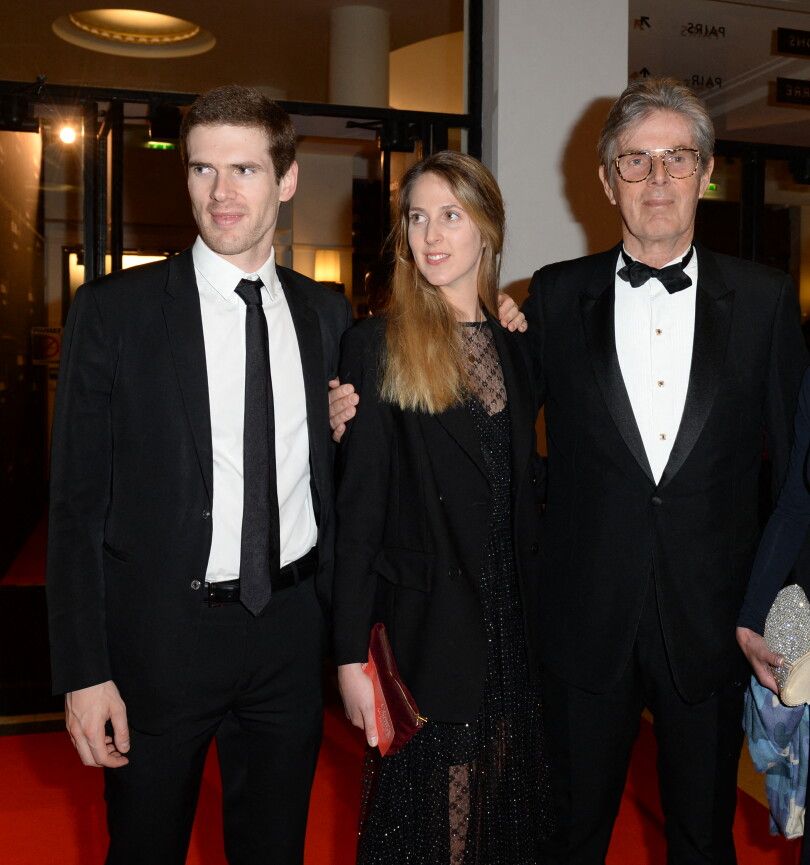
You mentioned fathers who are hard on their sons, but sometimes the opposite happens: Alexandre Barrière wanted to oust his father to the point of abandoning his name to take that of his mother…
It is a very special case, born above all from a family tragedy since Diane Barrière, the heiress to the casino fortune, was the victim of a terrible plane accident which left her, in 1990, seriously ill and disabled. , with two young children, Alexandre and Joy. Her husband and their father, Dominique Desseigne, took care of her, took over the management of the family business and raised their children without abandoning the life of a playboy, which was undoubtedly difficult for them to live with. children who lost their mother in 2000. Today, war has been declared between Alexandre and his father, to the point that the latter, removed by his son from any governance within the company, no longer even has the right to appear at the Deauville American Film Festival, an event to which he was particularly attached.
What have you learned from spending many months in this world?
What surprised me the most is that family stories are the same everywhere. Money does nothing, it can make them more spectacular, but the issues, the psychological forces that are at work in these moments of inheritance and transmission are terribly similar. Then it made me think a lot about the education we give to our children. What do we really want to convey? A financial and material heritage, of course, that counts, but in the end, it will be nothing if it is not accompanied by an ultra-solid emotional base which comes above all through love, time , attention: so many things that cannot be bought.
*: Successionsfamily secrets, by Raphaëlle Bacqué and Vanessa Schneider, Albin Michel, €19.90.
Read also >> Raphaëlle Bacqué and Vanessa Schneider: “Inheritance is a matter of feelings”

